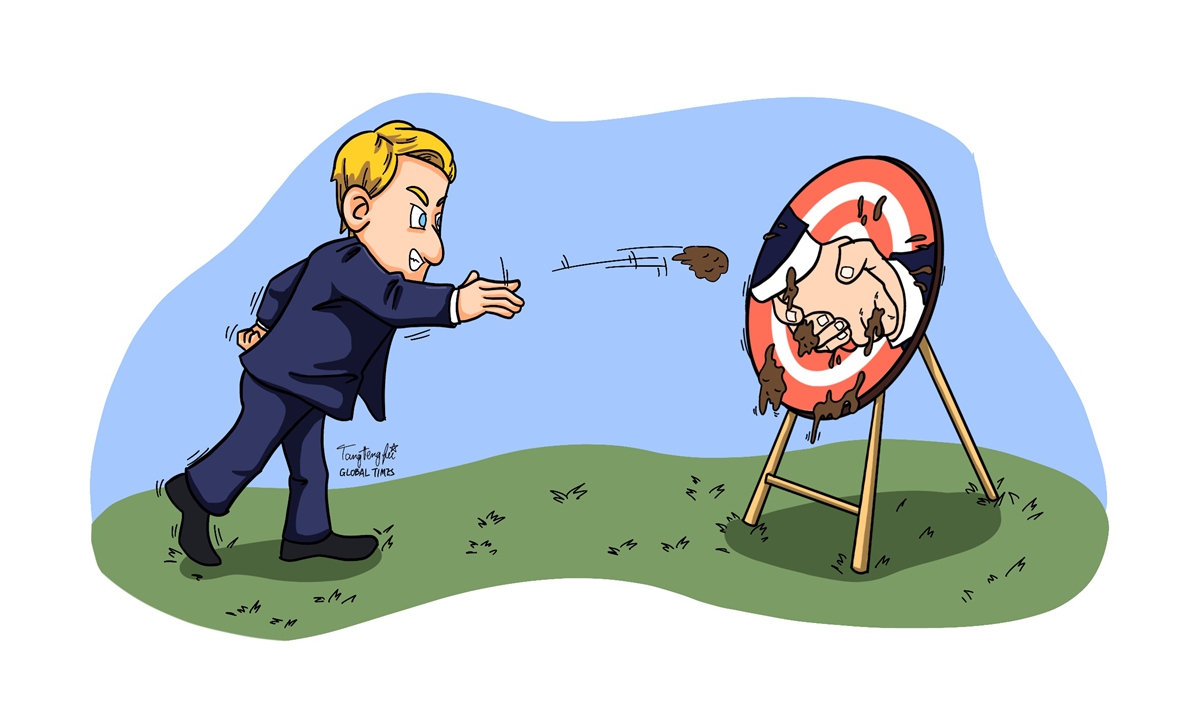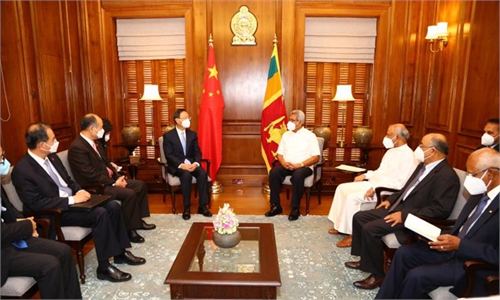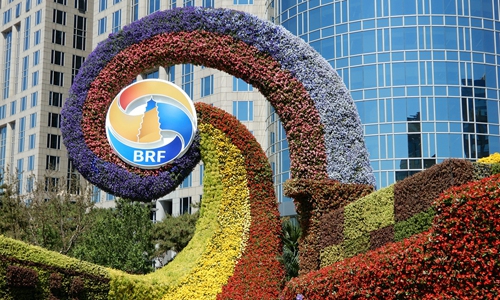COMMENTS / EXPERT ASSESSMENT
Hyping ‘debt trap’ theory hurts African countries’ recovery

Illustration: Tang Tengfei/GT
Many underdeveloped countries have seen their debt pressure being highlighted due to the outbreak of the novel coronavirus, which, in the eyes of some ill-intentioned foreign media outlets and anti-China forces, provides the best chance to smear China by hyping up the groundless "Chinese debt trap" theory.China postponed $245 million of Kenyan debt repayments which are due over the coming six months, according to a Bloomberg report published in January. The move is an earnest effort to help relieve the debt pressure faced by Kenya. However, it has spawned vicious slandering from foreign media outlets that have maliciously labeled the move as "an example of China's debt trap diplomacy."
Always hyping up the baseless theory, some Western media outlets and politicians want to smear China so as to obstruct the cooperation between China and other developing countries. Rather than facilitating the recovery of related countries under debt pressure, it will hamper their economic rebooting and cloud the prospects for the global economy.
For years, the Western media outlets have tried to put their words into mouths of related debtor nations and play up the lie that China was setting up a "trap." Kenyan President Uhuru Kenyatta has made it clear and said in an interview with CNN in 2018 that Kenya has a "very healthy mix of debt from multilateral lenders."
"We are borrowing from China. We have borrowed from the US," Kenyatta said, stressing that there was no difference between China and other lenders in term of "debt."
Groundless as the debt trap theory is, it may not be flipped in the short term, especially when the debt pressure of some developing countries has been exacerbated by the once-in-a-century pandemic crisis.
However, lies and baseless speculations will cause disarray and friction between parties of debtor nations and lower the efficiency of projects construction in the developing countries.
Taking the cooperation between China and Kenya for instance, the financing provided by China is mainly used for development projects such as transportation infrastructure, power transmission lines and river dams, which are in line with Kenya's national development agenda, and aimed at promoting its national economic development and improving the people's livelihood in the East African nation.
Since the outbreak of the pandemic, China has ramping up efforts to help African and other developing countries to jointly fight against the public health crisis, from donating medical supplies, sending medical teams to postponing debt repayments.
As the largest contributor to the G20 Debt Suspension Initiative, China had announced its suspension of repayments for 77 developing countries and regions, officials said in June 2020. Also, it has written off matured interest-free loans for 15 African countries.
Meanwhile, as most developed countries are still struggling in the pandemic and facing stinging economic recession, it is natural that foreign aid projects of these countries will be impacted. By comparison, China was predicted as the only major economy which realized more than 2 percent GDP growth in 2020 and is expected to be the major driven force for the global economic recovery during the post-pandemic era.
Hyping up so-called "debt trap" theory won't help the economic recovery of African and other developing countries at all, and the international community should work together to combat the public health crisis and pull the global economy out of malaise at the earliest.
The article was compiled based on an interview with Zhang Jianping, director of the Center for regional Economy, CAITEC. bizopinion@globaltimes.com.cn


